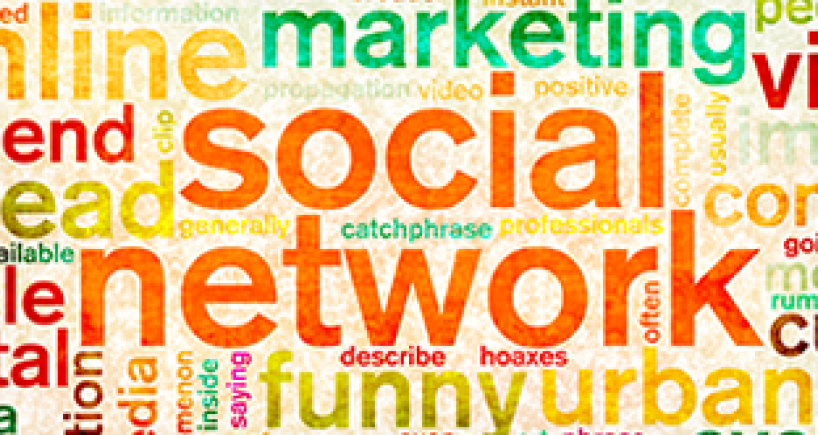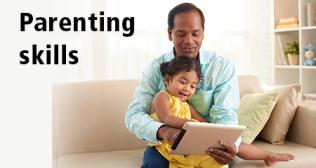
Mental Health and Behavioural Sciences
Media Literacy For The Youth: Coping With Media
Dr. Samir Parikh Jan 24, 2015
 We all are being bombarded with thousands of messages from morning to night, be it through the internet, television, radio, or print advertisements. While the influence of media on our lives is undeniable, this is especially so for the youth. As they take in from whatever they watch or hear around them, the impact of the media on these young minds is actually staggering.
While the media can be significantly detrimental in its influence on the youth of the country, it isn’t all bad. In fact, there is no doubt that the media can be extremely beneficial in creating empowerment and encouraging the growth of a democratic society. There are innumerable possibilities opened up by the media, but only if it is used with complete awareness and responsibility.
Therefore, the need of the hour is to educate ourselves about the source, purpose as well as messages provided via the media. This is especially important for the children and youth to be educated with the ability to critically understand the messages shown by the media, in order to be able to guide them towards right decisions effectively.
1. Distinguish fact from fiction. The media, particularly social media, can be extremely dangerous if we blindly trust what we see online or on television. We need to separate the virtual world from reality.
2. Identify stereotypes. The media is typically viewed as a definition of what is desirable, or in vogue. We should be able to recognize the fact that advertisements and entertainment media thrive on stereotypical notions.
3. Parental involvement. Instead of parents taking on the responsibility of monitoring their exposure to media, it is better to educate the youth so to themselves become media literate. Parents could talk to their children about media messages, and could help dilute the harmful effects that the media can have.
4. Cyber safety. It is important to educate the youth about the potential danger of the online world. We need to be aware of the risks entailed while using the internet, especially social networking sites and other forms of social media.
5. Think about the construction of the media. While usually we view the media as passive observers, it is important to sit back and think about the purpose with which that form of media would have been constructed, whom would it benefit and how. Such a reflection would help us realize how the media actually co-constructs our reality.
6. Question. Remember, to be media literate doesn’t mean you need to know all the answers. On the contrary, we simply need to be able to ask the right questions, so as to develop the skills to be able to use the media more effectively.
We all are being bombarded with thousands of messages from morning to night, be it through the internet, television, radio, or print advertisements. While the influence of media on our lives is undeniable, this is especially so for the youth. As they take in from whatever they watch or hear around them, the impact of the media on these young minds is actually staggering.
While the media can be significantly detrimental in its influence on the youth of the country, it isn’t all bad. In fact, there is no doubt that the media can be extremely beneficial in creating empowerment and encouraging the growth of a democratic society. There are innumerable possibilities opened up by the media, but only if it is used with complete awareness and responsibility.
Therefore, the need of the hour is to educate ourselves about the source, purpose as well as messages provided via the media. This is especially important for the children and youth to be educated with the ability to critically understand the messages shown by the media, in order to be able to guide them towards right decisions effectively.
1. Distinguish fact from fiction. The media, particularly social media, can be extremely dangerous if we blindly trust what we see online or on television. We need to separate the virtual world from reality.
2. Identify stereotypes. The media is typically viewed as a definition of what is desirable, or in vogue. We should be able to recognize the fact that advertisements and entertainment media thrive on stereotypical notions.
3. Parental involvement. Instead of parents taking on the responsibility of monitoring their exposure to media, it is better to educate the youth so to themselves become media literate. Parents could talk to their children about media messages, and could help dilute the harmful effects that the media can have.
4. Cyber safety. It is important to educate the youth about the potential danger of the online world. We need to be aware of the risks entailed while using the internet, especially social networking sites and other forms of social media.
5. Think about the construction of the media. While usually we view the media as passive observers, it is important to sit back and think about the purpose with which that form of media would have been constructed, whom would it benefit and how. Such a reflection would help us realize how the media actually co-constructs our reality.
6. Question. Remember, to be media literate doesn’t mean you need to know all the answers. On the contrary, we simply need to be able to ask the right questions, so as to develop the skills to be able to use the media more effectively. Categories
Clear allMeet the doctor

Dr. Samir Parikh
CONSULTANT MENTAL HEALTH & BEHAVIOURAL SCIENCES | Fortis Shalimar Bagh
- Mental Health and Behavioural Sciences | Mental Health and Behavioural Sciences | Psychiatry | Clinical Psychology
-
21 Years
-
900



















